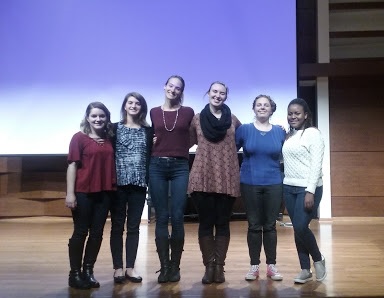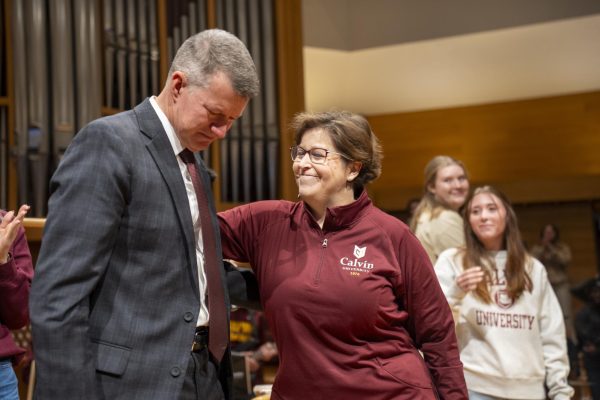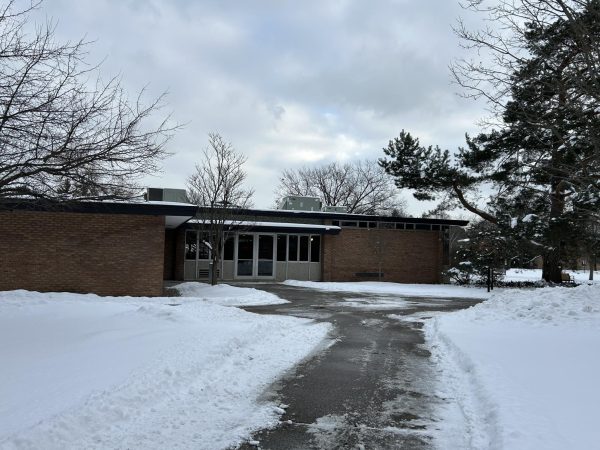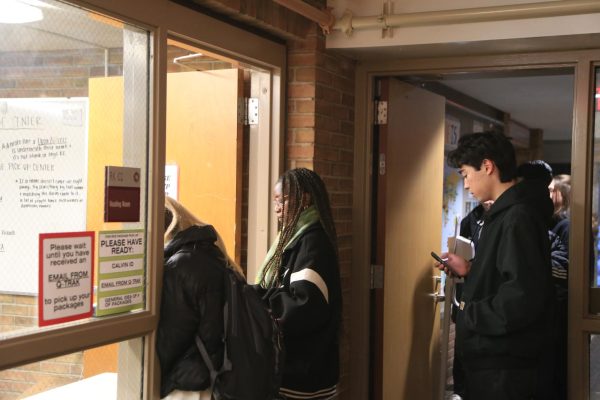Female engineers attend national conference

Photo by Emily Joy Stroble.
Members of Calvin’s chapter of Society of Women Engineers (SWE) traveled to Austin, Texas, to attend the national conference from Oct. 26–28.
With over 14,000 attendees at the 2017 conference, the women engineers (WE) conference is the world’s largest conference and career fair for women in engineering and technology, according to the organization’s website.
“It’s a big deal! It was cool to be surprised by the number of women in my field who can support and encourage me,” said Lillie Spackman, a sophomore who serves on leadership with SWE.
Senior Janelle Bellamy, sophomore Ivy Chipinda, junior Rachel Evans, senior Hattie Greydanus, sophomore Lillie Spackman and junior Melissa Van Baren participated in the job fair and attended seminars and networking sessions. They shared their experiences at an engineering seminar in the recital hall Wednesday, Nov. 15.
The students raised funds with the assistance of the development office to cover the cost of attendance and travel. They also sought community sponsors. Local businesses Vibration Research and Spicer Group responded with support.
Several students, including Greydanus, also competed for scholarships while at the conference.
For several of the students, the seminars, tailored to individual interests, were the most valuable and informative part of the conference.
“School does a pretty good job of teaching the technical skills,” said Spakman but noted that often one of the great benefits of extra-academic experiences like conferences is the opportunity to learn “soft skills” like leadership. Spakman mentioned several seminars that discussed these soft skills.
Seminar topics included company technical work, K-12 outreach, diversity in the workplace and life transition.
Students also had the opportunity to work on their resumes and attend talks on developing a personal brand.
Bellamy noted the importance of SWE as an organization.
“There are some pretty striking statistics out there that prove the gender gap,” she said, saying that this is closely related to the attrition rate among women working in engineering, which is approximately 40 percent. If that same percentage of female engineering students at Calvin left the engineering major it would be equivalent to losing all of the first-year engineering students and some of the sophomores, according to Bellamy.
A strong network of female engineers and conferences can be part of the solution, said Bellamy.
Chipinda said the seminars she attended encouraged her to start an outreach program and support women engineers in her home country, Zimbabwe. Chipinda is running a blog, “Zimbabwe Women Engineers,” and will begin visiting schools this coming summer.
“I started the blog freshman year, but I wasn’t motivated until the conference,” Chipinda said.






